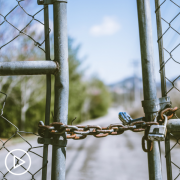How Can BIPOC Prostate Cancer Patients Protect Themselves Against Care Inequities?
How Can BIPOC Prostate Cancer Patients Protect Themselves Against Care Inequities? from Patient Empowerment Network on Vimeo.
How can BIPOC prostate cancer patients help protect themselves against care inequities? Host Dr. Nicole Rochester and Dr. Yaw Nyame share their perspectives about factors that work against equitable care for some BIPOC patients – and how patients and providers can work toward improving care for better health outcomes.
See More From Best Prostate Cancer Care No Matter Where You Live
Related Resources:

|

|

How Can Prostate Cancer Patients and Providers Help Ensure Quality Care? |
Transcript:
Dr. Nicole Rochester:
We know that there are as with every other type of cancer and every other disease, there are significant health disparities with BIPOC patients. And so, Dr. Nyame, I’d love for you to talk about specifically with prostate cancer, some of the disparities that you see in your practice and in your research, and then what are some things that patients of color can do to protect themselves from these inequities?
Dr. Nyame:
This is a very important topic for me, it’s something that I am very passionate about, and as Dr. Grivas alluded to, I am doing a lot of research on, and I think the statistics are so grey. Black men are 80 percent more likely to be diagnosed with prostate cancer. So the average man in the United States has a one and nine lifetime risk of being diagnosed with prostate cancer, that’s probably one in six or one in seven Black men. Black men are twice as likely to die from prostate cancer compared to men of other races and ethnicities in the United States, and a lot of this is driven by the social milieu and factors that we’ve talked about today. What troubles me is when we talk about these statistics, I fear that that in of itself is crippling for some Black men, “If I have this diagnosis, and I’m not going to do well. Why should I do anything?” And I can tell you that the literature and all the research that we do, and it gets refreshed every 10 years or so, someone will do the study and it shows that if we have Black men and men of other races or white men, and we give them the same treatment for the same level of disease, that the outcomes are actually very similar. And a better way to state that for me is if you’re diagnosed early and you get the treatment that you should get irrespective of your race, it seems like outcomes can be quite good.
And so, a lot of what we see with regards to prostate cancer inequities are driven by lower treatment rates and probably an impact of lower quality care. And when I say that, what does that mean? Well, do you get your care at places like the Seattle Cancer Care Alliance or the Cleveland Clinic, or Johns Hopkins or MD Anderson, where you have providers who are expert and do a lot of prostate cancer care, or are you being seen by someone in the community who I guarantee is an excellent clinician, but doesn’t have the same resources and the same expertise, in the sense of being focused on one disease process or one set of cancers? For instance, we are genitourinary cancer specialists, a fancy term for being cancer doctors of the plumbing system. But because that’s all we focus on, we know a lot about the process, we know what works, and we know what the standards of care. So, I think when you can get the right treatment at the right time, and you can get it from teams that are really specialized in this, that our outcomes are going to not care about what your self-defined race is when you check the box.
The problem is, how do we get…how do we close that gap that exists currently that doesn’t allow people to get that care, and I think we’ve talked about rurality, so I think…I grew up in Oklahoma, and I could see that if you are in the sticks in Oklahoma and you’re not near a cancer center, like something down in Dallas, that your care might be impacted, but…especially if you have to travel a lot and it’s expensive. But we have major U.S. cities like Los Angeles where you may share a ZIP code with a millionaire but use very different health services. So, it’s not always a reflection of how far you have to travel, but it also is factors about how welcoming institutions that provide high quality care can feel for populations like our BIPOC populations who sometimes have been the subject of medical experimentation and lower quality care sometimes because they might not get shuttled to the same services historically. And I think we have a lot to undo to rebuild the trust that is required to have Black men not be fearful of seeking care from us, but be trusting.



